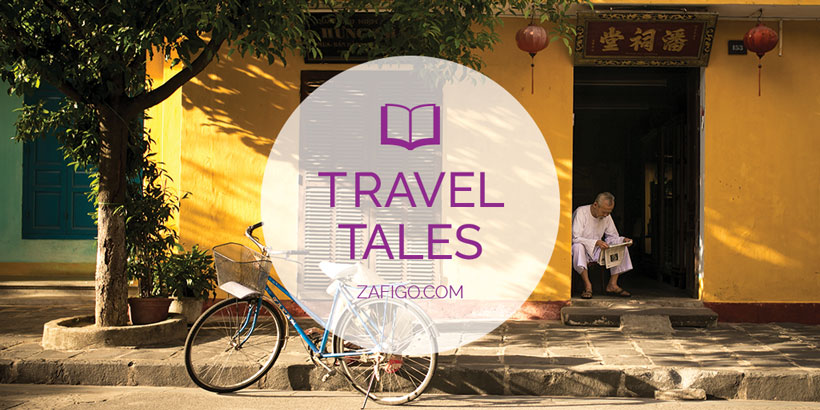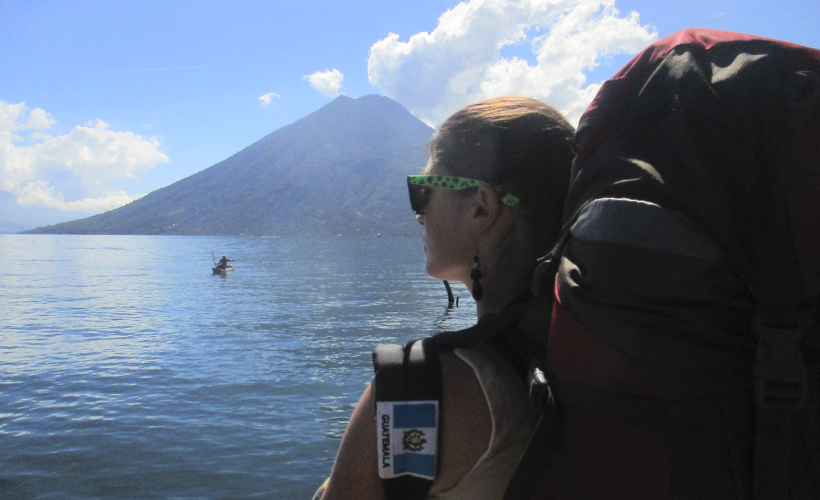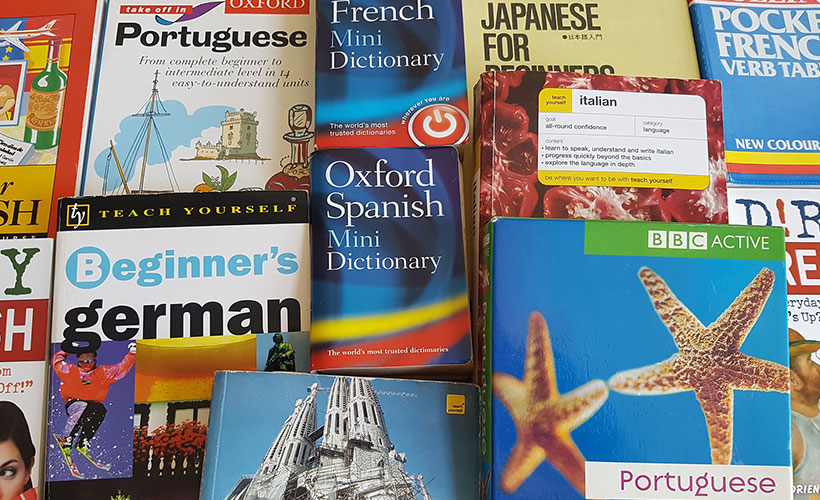“Aren’t you scared travelling the world all alone?”
“Don’t you have a husband to protect you?”
“So, what is the worst that’s ever happened to you?”
Yes. If you’ve travelled solo before (or merely had intentions to), I’m sure you’ve heard it all before. You’re a bold, kick-ass woman travelling the world on your own and that same world just doesn’t get it. Having been in the same boat myself, I feel you.
It’s normal. People tend to focus on the thrill of negativity and bad news. It’s a way of legitimising their own comfort zone and alternative life choices; constructing an outer universe full of thieves, terrorists, and bogeymen, making their own little safe haven sound not so bad after all.
While my parents were almost hospitalised by the realisation that I was going to spend two months volunteering in the “violent”, HIV-infected slums of Honduras (housing the Murder Capital of the World), the warm-hearted Hondureños I grew to be so fond of just couldn’t get their head around me visiting Europe where airports are being blown up and trucks drive into crowds. The truth is, if you sum up all the news headlines of a place, no matter where on the globe, it doesn’t make for a pretty picture nor does it even slightly approach the truth of local daily life, but then again that’s why you travel. For the simple reason that unlike most people you know, you actually go out there to see the world behind the headlines, exchanging hasty conclusions for real-life observations.
After four years full-time on the road, I compiled a list of useful tips – cultivated by trial and error – to share with those who want to travel the world in an unconventional and adventurous way (similar to the way I did) while keeping an eye on the budget and minimising unnecessary risks:
1. Avoid tourist buses or organised tours
Let’s go into the mind of a robber for a bit. Would you rather hold a bus filled with locals at gunpoint, maybe going home with some daily groceries and moderate pocket money? Or would you go straight for the jackpot: a bus packed with travellers, all carrying phones, laptops and travel money?
Yes, I know, you have that clever travel belt hidden under your clothes – but do you really think possible thieves have never heard about this public secret in 2018? The smarter move to avoid robbers is to break away from their target group. Swap tourist transport for the local way about town and save a handful of bucks while you’re at it.
Another option for the more adventurous among us is hitchhiking, which is how I personally roam the world. Yes, all alone, as a woman, even in third world countries. No, nothing’s ever happened, besides a whole pile of marvellous experiences.
I won’t push you to run out there this very second and get into cars with strange people, it’s certainly not for everyone. However, if you want to give it a go, consider these first-hand experience tips:
- Take a photo of the number plate and inform the driver you’re sending this to your friend for safety reasons (preferably use the word ‘boyfriend’ when in male company). A good person will understand, a bad person will show his true colours by now.
- Don’t use a hand-scribbled sign. If you have an uncomfortable feeling with the person that stopped, just ask where he is going. Whatever the answer: You’re going exactly the other way, what a bummer!
- The most important one of all: Always trust your instincts. Your gut’s basically a conclusion of previous experiences, your subconscious sending warning signs when detecting certain patterns. If it doesn’t feel good, it probably isn’t.
Tip If hitchhiking is too hardcore for you, look into rideshare apps/Facebook pages, or on car relocation websites.
2. Avoid taxis when possible
It sounds like the safer way to go right? But what exactly makes it different from hitchhiking besides the fact that you lose money over it? You get into a car with a stranger in a city you don’t know, he can drive you everywhere, he can lock the doors and he can call his friends to inform them about the foreigner in his car! It’s a robbery in the making. This has happened to me before, but you can prevent it in time. Which brings me to the next point:
3. Try to learn the language
It’s surprising how rude people can be if they think you don’t understand what they’re saying. Travelling taught me quite a number of languages – nine to be exact – and saved me from several highly unpleasant situations, including the one mentioned above. Education for safety!
4. Don’t keep your valuables on you
It might sound odd, right, because that’s the exact opposite of what people told you? But look at it this way: In a country where you don’t have the same physical appearance as the locals, you’ll stand out from the crowd. So sometimes, the ‘wrong’ people will notice you, making you an easy target. Knowing this, would you rather have debit and credit cards, all your money and passport on you, or safely stored wherever you are staying?
5. Local accommodation versus ho(s)tels
Organised tourist accommodation may sound like the safest option, but the same logic applies as with transportation. Would a thief rather rob a single local house or collect hundreds of electronics off tourists with the same amount of effort?
There are great and free alternatives out there. Couchsurfing allows you to stay on the spare sofa or bed of a local’s home as an international social exchange. WorkAway and WWOOFing are volunteer networks swapping work for accommodation and often food, while Housesitting allows you to stay a certain period in someone’s pad while taking care of their home and pets.
6. Don’t stress too much
Paranoia is easy to recognise and is basically a non-verbal way to say, “Look at me, I have something worth a lot and I’m scared I’ll lose it.” It’s the exact opposite message of what you intend to get across and ruins what’s supposed to be a relaxing travel break.
As an old, wise man once said (it was probably just Google), “Worrying is like walking in sunny weather with an umbrella in case it might rain.” Be alert, be aware, but let life come to you as it is – in all its splendour.
Read our last Travel Tale:
Kite Surfing On An Empty Beach In Palawan, Philippines
Here’s your chance to get published on Zafigo! We want your most interesting Travel Tales, from memorable adventures to heartwarming encounters, scrumptious local food to surreal experiences, and everything in between.
They can be in any form and length –short stories, top tips, diary entries, even poems and videos. Zafigo is read by women travellers the world over, so your stories will be shared to all corners of the globe.
Email your stories to [email protected] with the subject line ‘Travel Tales’. Include your profile photo and contact details. Published stories will receive a token sum.






